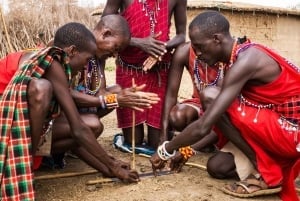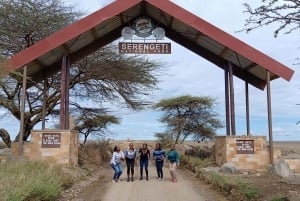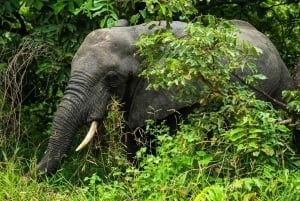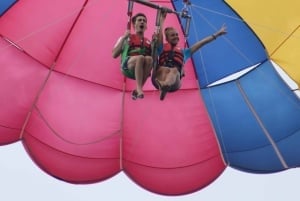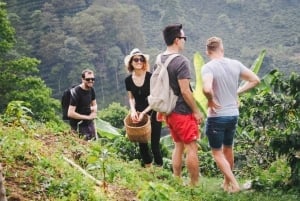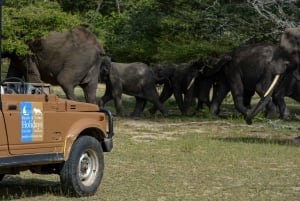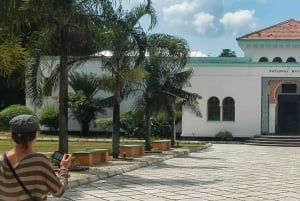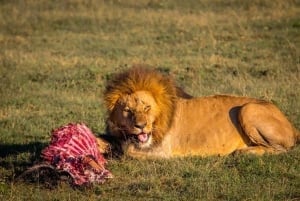Tanzania What to Wear & What to Take

It never gets really cold in Tanzania so lightweight clothing, preferably cotton or linen, is recommended. While on a game viewing safari, avoid brightly coloured clothing, stick to whites, beiges, khakis and browns. There may be long days sitting in safari vehicles, so it is advisable to wear light comfortable clothing such as short sleeved shirts and cotton/linen trousers or shorts. Denim will become too hot and extremely uncomfortable. Walking shoes and socks will be required.
During the high season (June to September), the days will start off cool becoming warmer from mid morning. The evenings will be chilly, so long sleeved shirts and trousers should be worn. A sweater may be needed. These will also prevent you being bitten by insects. A hat should be worn at all times outside. The sun may sometimes not feel hot, but it can still easily burn, especially if it is cloudy and overcast.
For mountain hiking it is recommended to take thermal underwear, a rain jacket and sturdy hiking boots. Don't forget a heavy duty warm jacket as temperatures on the peaks reach well below zero.
If visiting Zanzibar or any coastal town don't forget to take a swimsuit, as it is invariably warm. Ladies are recommended to take cotton skirts, blouses and dresses. Sandals are a must for this environment! On the beaches and within the confines of hotels, normal swimwear is acceptable but nudity is not.
As over a third of the population in Tanzania is Muslim, it is therefore not etiquette for ladies to walk around in public displaying their legs and shoulders. Remember to dress modestly as short shorts, miniskirts, vests and tank tops will be frowned upon.
When packing, depending on the safari, remember, try to pack lightly even though laundry may not always be accessible and that chartered flights only allow approximately 10kgs of luggage.
When packing electrical equipment remember that Tanzania's electricity runs on 220 volts AC50HZ, with most electric wall sockets being for square three pinned plugs. A plug adaptor will most likely be required. Most hotels and lodges will have some form of electricity, either mains, generator or solar. Depending on where you stay some of your electrical equipment may not be able to be used.
Don't forget a camera (if necessary, film), binoculars and a small torch. Stock up on camera batteries, as shops will not always be accessible to purchase new ones, and rechargable batteries may run flat due to not having access to proper electricity.
Sun screen, sun glasses, lip balm, insect repellant and a small medical kit should be high on the list of things to take. If special medication is required, please ensure that this has been well stocked as it may be impossible to purchase that particular type of medicine in Tanzania. Remember to take extra contact lenses and ladies don't forget to take enough female sanitary items.
For budget travellers, depending on how much room you have in your bag, try and pack a mosquito net. Most budget accommodation within the towns tend to be built in high density areas, where malaria is at it's highest, and there may not be mosquito nets in the rooms.


